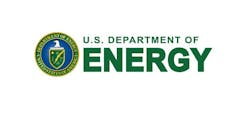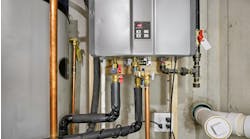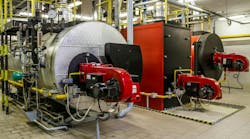The commercial boiler market size grow from its current value USD 11.8 billion to over USD 29.3 billion by 2035, growing at a CAGR of around 6.8% till 2035, as per the research done by Market Research 365
The increasing emphasis on energy efficiency within commercial buildings is leading to a heightened demand for advanced commercial boilers that utilize cutting-edge technologies like condensing boilers and modulating burners. These innovations are aimed at maximizing fuel efficiency and minimizing energy waste, resulting in reduced operating expenses and lower carbon emissions.
The uptake of low-emission commercial boilers is being propelled by regulatory mandates and environmental campaigns. More stringent emissions criteria and a growing preference for eco-friendly structures are incentivizing the utilization of cleaner fuel sources like natural gas or biofuels. This, coupled with the integration of emission control mechanisms, facilitates the attainment of sustainability objectives in building operations.
Global Expansion
The expansion of the boiler market can be credited to their global accessibility and commendable energy efficiency. These boilers provide end-users with the versatility to employ renewable fuels for heating applications. Certain areas are witnessing companies providing a blend of heating oil and biodiesel, aiming to curtail reliance on foreign oil by harnessing locally accessible energy reservoirs. Moreover, oil-fired boilers present a more economical operational expense compared to electric boilers, rendering them a financially prudent heating alternative for numerous consumers.
The commercial boiler market encountered substantial obstacles and disturbances due to the COVID-19 pandemic. The enforcement of lockdown protocols by governing bodies has not only affected the production capabilities of boiler manufacturers but has also led to a reduction in demand for commercial use. Nevertheless, a noticeable resurgence in the market has been observed since the latter part of 2021, as numerous manufacturing sectors have recommenced their activities.
Electric Boilers
The drive for energy efficiency and reduced carbon emissions has led to a greater demand for electric commercial boilers. These boilers produce zero on-site emissions and can be powered by renewable energy sources, aligning with the push for greener solutions in commercial buildings. Electric commercial boilers are increasingly being integrated with smart and connected technologies. IoT (Internet of Things) capabilities allow for remote monitoring, control, and optimization of boiler performance, leading to better energy management and maintenance.
Hot water commercial boilers are being designed to integrate with renewable energy sources such as solar thermal systems or heat pumps. This integration reduces reliance on conventional energy sources and contributes to carbon footprint reduction. These systems are becoming more intelligent and connected. IoT-enabled controls allow remote monitoring, diagnostics, and optimization of boiler performance, leading to better energy management and predictive maintenance.
Modular Boilers
Commercial boilers with capacities in the 2.5 - 10 MMBtu/hr range are increasingly being designed with modular and compact configurations. Modular systems allow for scalability and flexibility, enabling businesses to adapt the boiler capacity to their changing needs. Energy efficiency remains a critical factor. Boiler manufacturers are incorporating advanced combustion technology, improved heat exchange surfaces, and condensing features to optimize fuel utilization and reduce operating costs.
Impact of Regulation
The boiler market is on the cusp of expansion, driven by a significant shift toward the advancement of sustainable buildings and the implementation of governmental directives geared towards achieving decarbonization and exceptionally energy-efficient building stocks in the imminent future. Regulatory bodies have instituted measures obligating member nations to embrace strategies aimed at curbing the carbon impact of commercial facilities. These endeavors have fostered a favorable setting for the uptake of energy-efficient heating solutions, propelling the overall market prospects.
Stricter emissions regulations and environmental concerns are driving the adoption of low-emission and ultra-low NOx boilers across the North America. Commercial boilers are being designed and retrofitted to meet these stringent emissions standards, contributing to cleaner air and reduced carbon footprint. Energy efficiency remains a key driver. Building owners and operators are increasingly seeking high-efficiency boilers that help lower operating costs and align with sustainability goals. Condensing boilers and advanced combustion technologies are gaining prominence.
Key Players
Key operating players in commercial boiler market are Babcock Wanson, Clayton Industries, The Fulton Companies, Miura America, Vaillant Group, Ariston Holding, Remeha, Precision Boilers, A.O. Smith Water Products Company, Slant/Fin Corporation, PARKER BOILER, Bradford White Corporation, Columbia Boiler Company, BURNHAM COMMERCIAL BOILERS, Weil-McLain, Bosch, Atlantic Boilers, FERROLI, VIESSMANN, Cleaver-Brooks and Babcock & Wilcox Enterprises.
To learn more visit: https://www.marketresearch365.com/industry-insights/commercial-boiler-market-1159


